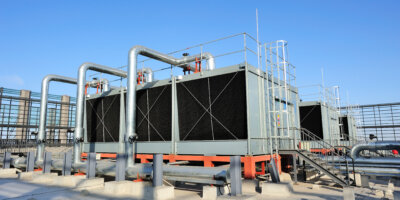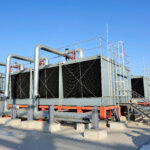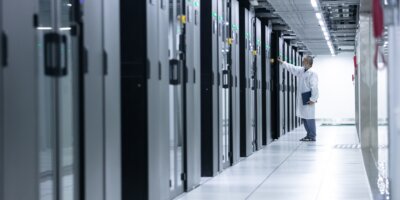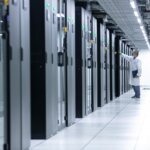
How GDS and SK ecoplant are revolutionizing data center energy. (Source – Shutterstock)
Watt’s next? Fuel cell technology and the GDSxSK ecoplant vision for data centers
- GDS and SK ecoplant partner to bring fuel cell technology to a Singapore data center.
- The GDS and SK ecoplant partnership aims to globally redefine data center energy with fuel cells.
- The use of fuel cell technology could prove a pattern for future data center power.
As data centers worldwide grapple with escalating energy demands and environmental concerns, trailblazing solutions are more crucial than ever. Enter fuel cell technology—a clean, efficient, and scalable energy source capturing industry leaders’ attention.
Setting the stage for a revolution in data center power management, GDS and SK ecoplant have embarked on a landmark partnership. What follows is an in-depth look at this visionary collaboration, and why it could be a game-changer for sustainable energy use in data centers worldwide.
GDS, a frontrunner in developing and operating top-notch data centers, has joined forces with SK ecoplant, an affiliate of the South Korean SK Group specializing in energy and the environment. Together, they have declared an experimental partnership to use fuel cell technology to power GDS’ future data center in Singapore. This collaboration underscores their mutual commitment to sustainable growth and adopting renewable energy sources in the Southeast Asian region.
Earlier, GDS and SK ecoplant had already agreed to collectively advance eco-friendly fuel cell technologies in Southeast Asian data centers. When pitted against traditional energy sources, fuel cells exhibit remarkable green credentials by converting hydrogen or other renewable fuels into electricity. This results in a highly clean energy generation process that significantly minimizes or eliminates emissions.
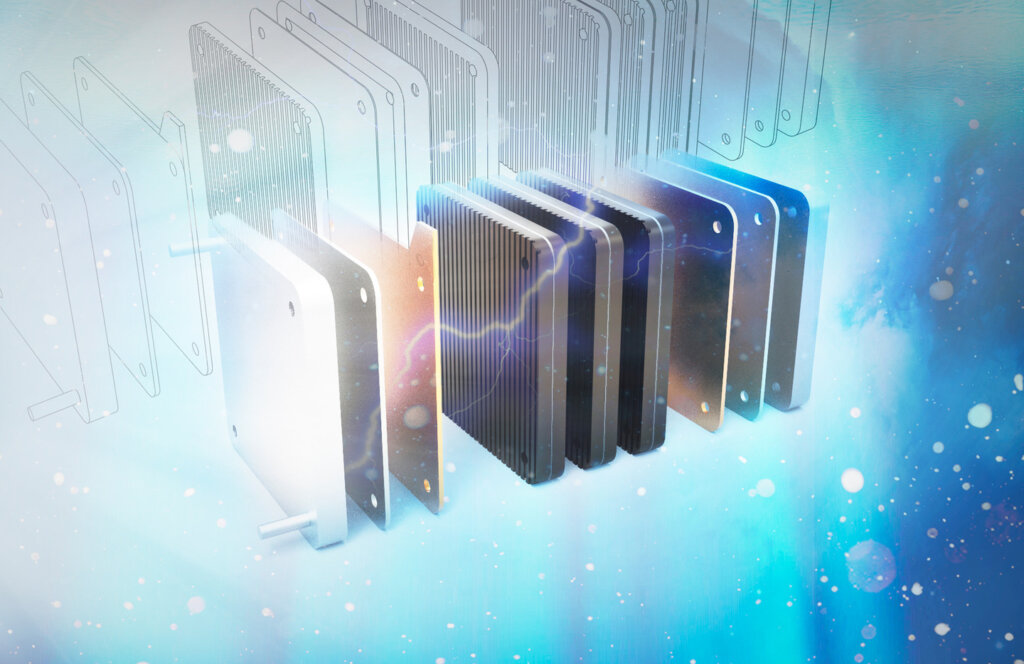
The hydrogen fuel cell is a green option for data centers.
Building on its recent success in acquiring new data center capabilities, GDS has set the stage for groundbreaking hydrogen pilot projects in Singapore, alongside leading industry partners. Partnering with SK ecoplant, the first project investigates solid oxide fuel cell (SOFC) technology using green hydrogen as a primary energy source. The second project looks at using locally generated power derived from imported hydrogen. These pilot projects are anticipated to serve as crucial case studies, influencing the adoption and development of hydrogen-based solutions.
Why fuel cell technology is important for powering data centers
The adoption of fuel cells for data center energy needs marks a watershed moment in our approach to sustainable power solutions. Data centers demand a relentless electricity supply to maintain uptime and performance levels. Conventional energy supplies, mostly based on fossil fuels, are limited and detrimental to the environment. Here’s why fuel cells are increasingly seen as the next big thing in data center energy solutions:
- Environmental impact: Fuel cells are a greener alternative to traditional electricity generation, emitting far fewer pollutants.
- Energy efficiency: Known for their efficiency, fuel cells transform a more significant fraction of their fuel into usable electricity, cutting down on energy wastage—a crucial factor for the 24/7 operations of data centers.
- Reliability and scalability: The energy demands of data centers are ever-increasing, and fuel cells can be scaled to meet these growing needs. Modular systems make it easier to adapt and expand energy solutions as required.
- Strategic alignment: Implementing fuel cells aligns with broader environmental objectives at both the organizational and national levels. This initiative dovetails perfectly with Singapore’s National Hydrogen Strategy, targeting low-carbon hydrogen for up to half its future electricity needs.
From plan to action: The experimental phase with fuel cell technology
In this experimental phase, GDS will use state-of-the-art technology, capitalizing on its extensive industry expertise to create a top-tier data center in Singapore. SK ecoplant will work closely with its strategic ally, Bloom Energy, to produce low-carbon electricity through solid oxide fuel cell (SOFC) technology. Starting with a limited-scale fuel cell installation using natural gas, the plan is to transition to hydrogen as infrastructure and regulations mature eventually.
William Huang, GDS’s CEO, expressed enthusiasm about the collaboration, saying it amplifies their data centers’ eco-friendly attributes and paves the way for broader green energy adoption. “With SK ecoplant’s invaluable support, we are steadfastly working toward pioneering SOFC-powered data centers, targeting to establish Southeast Asia’s first fuel cell-powered facility,” he added.
Kyung-il Park, SK ecoplant’s CEO, believes the joint venture will unlock vast growth potential in Southeast Asia’s renewable energy sector. “We’ll accelerate our focus on commercial fuel cell markets, leveraging our experience in a range of applications—from small-scale to expansive systems like data centers and hospitals,” he said. “Our aim is to dominate the global fuel cell market through ongoing partnerships, including with Bloom Energy.”
Aligning corporate goals with global sustainability
Being an industry leader, GDS is unwavering in its commitment to carbon neutrality by 2030. This partnership with SK ecoplant is a significant stride toward this goal and aligns well with Singapore’s National Hydrogen Strategy, aiming to satisfy up to half of Singapore’s future electricity needs through low-carbon hydrogen.
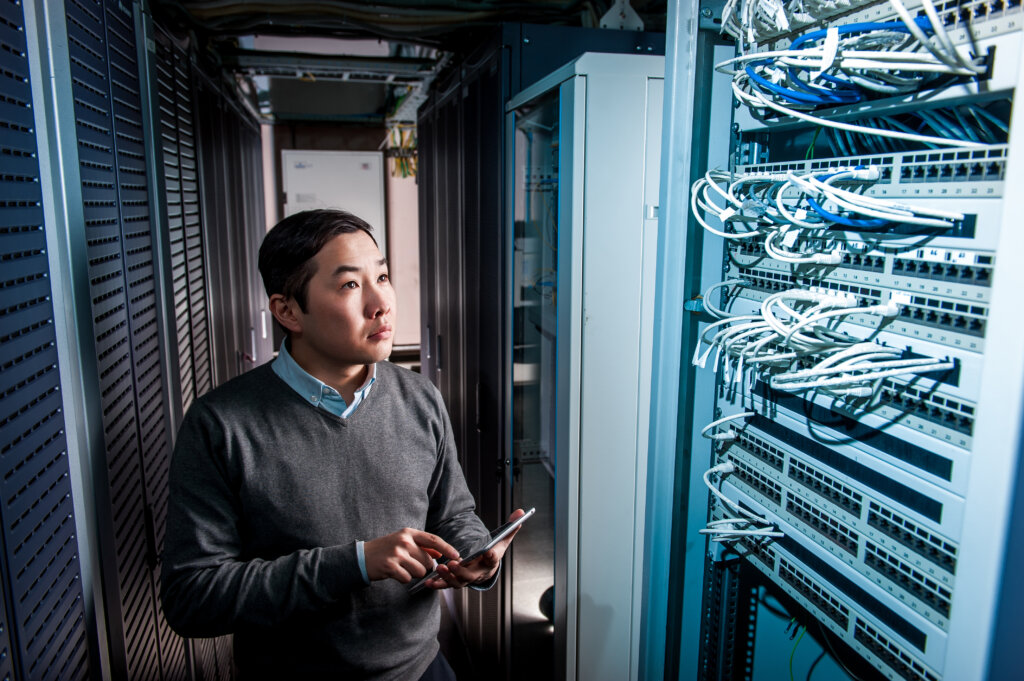
Companies showing commitment to carbon neutrality. (Source – Shuttertsock)
GDS is pioneering a path toward more responsible energy use in an industry often criticized for its energy consumption and carbon footprint. By actively trialing the real-world application of hydrogen fuel cells through the use of SOFC technology, this alliance showcases a corporate responsibility to reduce environmental impact and a broader commitment to align with national and international sustainability initiatives.
The ripple effects of this collaboration are likely to be felt far beyond the shores of Singapore. As data centers continue to proliferate worldwide, the pressing need for sustainable, efficient, and scalable power solutions becomes ever more critical. The partnership between GDS and SK ecoplant may serve as a model for how industry leaders can collaborate to address these challenges while supporting broader environmental sustainability and carbon neutrality goals.
READ MORE
- 3 Steps to Successfully Automate Copilot for Microsoft 365 Implementation
- Trustworthy AI – the Promise of Enterprise-Friendly Generative Machine Learning with Dell and NVIDIA
- Strategies for Democratizing GenAI
- The criticality of endpoint management in cybersecurity and operations
- Ethical AI: The renewed importance of safeguarding data and customer privacy in Generative AI applications



